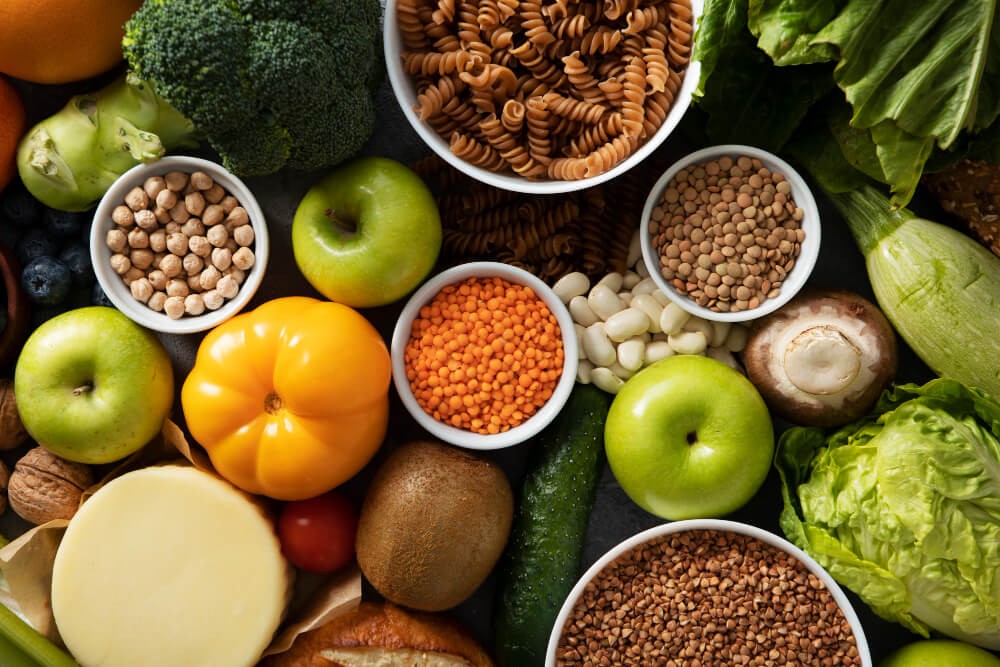In today's fast-paced world, many people opt for restaurant meals because they are convenient and save time. However, nutrition experts often recommend preparing meals at home instead of dining out.
Not only is home cooking more cost-effective, but it also provides numerous benefits for overall health.
Home Cooked Meals are Healthier Than Restaurant Cooking, Here's Why!
There are several reasons why nutritionists believe home-cooked meals are healthier than restaurant fare. Below are some key factors:
Better Control Over Ingredients and Quality
When you cook at home, you have complete control over the ingredients you use. You can select fresh, natural, and high-quality items, ensuring that your meals are free from harmful additives, artificial coloring, and preservatives that can negatively impact health.
Additionally, if you prefer organic or pesticide-free options, you can make those choices to suit your dietary needs or healthy lifestyle. For example, you might choose heart-healthy oils like olive oil or coconut oil, rather than the trans fat-laden oils often used in many restaurants.
Less Salt, Sugar, and Fat
Restaurants frequently add extra salt, sugar, and fat to enhance the flavor of their dishes. However, this excess can contribute to health issues like high blood pressure, obesity, and diabetes.
At home, you can control the amount of salt and sugar in your food, and opt for healthier fats that support heart health.
Moreover, many restaurants rely on MSG (Monosodium Glutamate) as a flavor enhancer. While generally considered safe, some individuals may experience side effects such as headaches or other discomforts.
By preparing meals yourself, you can avoid MSG and instead use natural spices like garlic, ginger, turmeric, and other fresh herbs, which not only add flavor but also have health benefits.
More Balanced Portions and Nutrition
Restaurant portions are often oversized, and many dishes—especially fried foods or those smothered in creamy sauces—can be high in calories. These large servings can lead to overeating, especially if you’re accustomed to finishing everything on your plate.
Home cooking allows you to control your portion sizes, ensuring that your meals are nutritionally balanced with appropriate amounts of protein, complex carbohydrates, fiber, and vitamins. You can also increase the proportion of vegetables and fiber in your meals to boost nutrient intake without unnecessary calories.
More Assured Cleanliness
While restaurants follow hygiene guidelines, there is always a risk of contamination due to large-scale food preparation and the frequent use of cooking utensils.
At home, you have complete control over food safety. You can wash ingredients thoroughly and ensure that all cooking tools are properly cleaned. A more relaxed cooking environment at home reduces the chances of contamination, ensuring that your meals are prepared safely.
Avoid Using Preservatives
Many restaurant dishes, particularly fast food, contain preservatives to prolong shelf life and speed up meal prep. Home-cooked meals, on the other hand, are typically fresher and free from such additives.
Make home cooking your go-to choice for better health. Not only is it more affordable, but it also helps you maintain a healthier body and lifestyle.
Have health concerns or questions? Take advantage of the health consultation service on the Ai Care app, available for download on both the App Store and Play Store.
Want more insights on nutrition, healthy eating, and diet tips? Click here!
- dr Nadia Opmalina
Helpguide.org (2024). Cooking at Home. Available from: https://www.helpguide.org/wellness/nutrition/cooking-at-home
WHO (2023). Sodium reduction. Available from: https://www.who.int/news-room/fact-sheets/detail/salt-reduction
American Heart Association (2022). Effects of Excess Sodium Infographic. Available from: https://www.heart.org/en/healthy-living/healthy-eating/eat-smart/sodium/effects-of-excess-sodium-infographic
Madeline Laguaite (2023). Signs You’re Eating Too Much Salt. Available from: https://www.webmd.com/diet/ss/slideshow-too-much-salt
Reven Widener (2023). What Can Happen After Eating Too Much Healthy Fat?. Available from: https://www.health.com/nutrition/too-much-healthy-fat
WebMD (2022). Foods High in Fats. Available from: https://www.webmd.com/diet/foods-high-in-fats
Michael Kerr (2022). What Is an MSG Allergy?. Available from: https://www.healthline.com/health/allergies/msg












